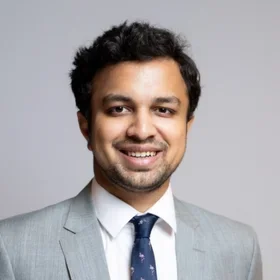Katrina Hui has long been interested in the intersection of medicine and philosophy. She studied both of these fields as an undergraduate at Stanford, and then further explored these disciplines – with a focus in neuroethics – as a student in the M.S. program in Bioethics at Columbia.
She tells me that, due to the mentorship of the faculty, she was able to conduct her own independent scholarly work. Most notably, she covered this subject matter in her thesis. With the help of Dr. Carl Fisher, instructor for Topics in Neuroscience and Ethics, she expanded her paper on and co-published it with Fisher: “The ethics of molecular memory modification” appeared in The Journal of Medical Ethics in 2014.
She graduated from the program in 2013, received her M.D. at McMaster University, and is now a current resident in psychiatry at the University of Toronto. Reflecting on her time in the Bioethics program, she says, “A lot of the questions that we talked about come up in clinical practice.” She says that, as a result of studying ethical issues concerning – for instance – end-of-life care and organ donation, she gained a deeper and more nuanced understanding of such dilemmas. Having grappled with these questions, she says, will help inform her approach as a medical practitioner.
Over the phone, we spoke about the bioethics quandaries she has studied, the ensuing research that she published, and how studying ethical issues will help her in the field.
I'm curious about what you were doing right before the Bioethics program and what got you interested in that field.
I had majored in biology and minored in philosophy at Stanford. I was working in California at a medical device company as a clinical analyst. I had always known that I wanted to go to medical school. I think Bioethics was a very natural path for me to pursue, given those two areas of study. I wanted to get the chance to go back to school and explore something new before committing to the endeavor of medical school.
I wonder why you were interested in bioethics specifically. Did you see it as a stepping stone to med school?
Well, I had planned to take a couple of years off. I don't know if you count going to school and working full-time as taking a few years off, per se. [laughs]
I had taken a lot of courses in ethics [as an undergraduate] and thought it was really interesting. A lot of the questions that were asked were very different from what was asked in biology. Bioethics, to me, was a way for me to go back and explore these issues. It will help me, too, in my profession. I go back to a lot of the questions that were raised during my time at Columbia. It was very helpful. A lot of the issues from my course of study come up now, in medical school.
What kinds of questions were raised in the Bioethics program? What were you most interested in when you were studying?
The thing about the program is that you get a lot of breadth. I got the chance to take a really interesting course in public health law at Columbia Law School, as an elective. It definitely got me to understand how to approach the legal side of things, which I hadn't yet gotten the chance to do as part of my undergraduate studies.
Personally, I am interested in the neurosciences, so I took the Neuroscience & Ethics course with Dr. Fisher. We eventually were able to do some publications and research together. We took my final paper, which explored memory enhancement, and expanded it more, and eventually were able to get it published [in The Journal of Medical Ethics].
How did you apply your studies as a medical student?
A lot of the questions that we talked about [in Bioethics] come up in clinical practice – for instance, organ donation or end-of-life issues. All of those things, you encounter on a regular basis in medicine. Not that I have any clear answers about what to do in any single case, but I think that, to introduce those questions early on makes you look at them in a more nuanced way. Not just looking at it from a medical standpoint but also from the perspectives of policymakers and lawyers and administrators. It can broaden your perspective. It's made me more sensitive to those issues.
Anything else you wanted to mention about the Bioethics program, your career, or Columbia?
I think that the mentorship was really valuable. Especially having the program positioned at Columbia, where you're able to take courses from Columbia Law School, for example, was really fantastic. It was a great opportunity to really learn, and to work with leaders in different fields.


